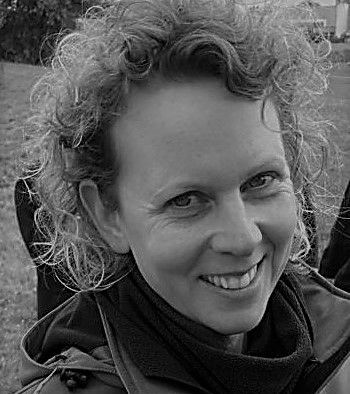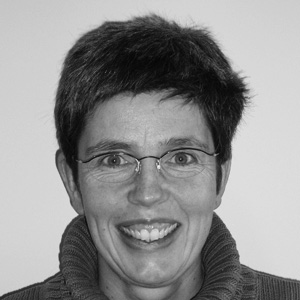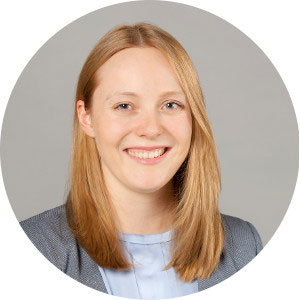This conference will discuss developments in the assessment of thyroid disrupting effects of chemicals and will cover regulatory issues, testing approaches, modelling and tool development as well as news on recent projects.
When you are involved in the identification and assessment of endocrine disruptors and their effects on the thyroid, this conference will offer you a great opportunity to stay on top of things. Inform yourself about the latest developments regarding assays, modelling and tools, regulatory issues as well as EU-wide projects.
Professionals working in the fields of:
Sectors that should take part:
Picture Credit: © Marko Aliaksandr - Shutterstock
PLEASE NOTE: The indicated times refer to Central European Time CET.
For further time zones, please view here.
Stephanie Melching-Kollmuss, BASF, Germany
Martin Wilks, Swiss Centre for Applied Human Toxicology, Switzerland
The presentation slots include sufficient time for questions and answers.
Andrea Terron, European Food Safety Authority (EFSA), Italy
Susy Brescia, Health and Safety Executive, Chemicals Regulation Divison (HSE/CRD), United Kingdom
Anne Gourmelon, Organisation for Economic Co-operation and Development (OECD), France
Stephanie Melching-Kollmuss, BASF, Germany
Tim Korevaar, Erasmus University Medical Center, The Netherlands
Ellen Hessel, National Institute for Public Health and the Environment (RIVM), The Netherlands
Manon Beekhuijzen, Charles River Laboratories, The Netherlands
Katherine O‘Shaughnessy, U.S. Environmental Protection Agency (EPA), United States of America
Andreas Kortenkamp, Brunel University London, United Kingdom
Lisa Baumann, Vrije Universiteit Amsterdam, The Netherlands
Joëlle Rüegg, Uppsala University, Sweden
Gregory Lemkine, Laboratoire Watchfrog, France
Ellen Fritsche, IUF – Leibniz Research Institute for Environmental Medicine, Germany
Pavel Balazki, esqLABS, Germany
Fang Zhang, Syngenta, United Kingdom
Chad Deisenroth, U.S. Environmental Protection Agency (EPA), United States of America
Folgende Referenten haben bereits zugesagt, weitere folgen in Kürze:
Name
Unternehmen

Pavel Balazki
esqLABS
Pavel Balazki is Senior Scientist and Software ToolChain Lead at esqLABS. He is an interdisciplinary scientist with extensive experience in physiological modelling and programming skills. He focuses on the combination of modelling and software development to offer QSP platforms as integrated solutions. Pavel acquired strong knowledge and expertise in mechanistic and physiologically based PK/PD modelling, biology, and human physiology. He has developed scientific software tools for stochastic simulations of biological systems modelling and graph database-based text analysis.
mehrweniger
Lisa Baumann
Vrije Universiteit Amsterdam, The Netherlands
Lisa Baumann is an assistant professor at the Vrije Universiteit Amsterdam. She is specialized in aquatic toxicology with focus on endocrine effects, hepatotoxicity and immunotoxicity in fish. Special focuses of her work are developmental studies with zebrafish (embryos), as well as histopathological analyses. She is part of the EFSA working group for endocrine disruptors.
mehrweniger
Manon Beekhuijzen
Charles River Laboratories, The Netherlands
Manon Beekhuijzen studied Medical Biology at the Utrecht University. In 1999, she joined Charles River in the Netherlands as Study Director for developmental and reproduction toxicology (DART) studies and was responsible for a major part in setting up all different type of DART and juvenile studies at this site. In 2014, she was promoted as section head DART (managing the DART study directors) and in 2018 this was extended to include the study directors of the general toxicology group. She is registered as European Toxicologist (ERT), past-president of the European Teratology Society (ETS), and board member of EUROTOX.
mehrweniger
Susy Brescia
Health and Safety Executive, Chemicals Regulation Division (HSE/CRD), United Kingdom
Susy Brescia works as the Toxicology Team Leader at the UK HSE / CRD and has many years of experience in the risk assessment of pesticides, biocides and industrial chemicals. She has become an expert on testing and assessment of substances with ED properties and has been a member of DG ENV Expert Advisory Group, EFSA Working Group on EDs and ECHA Expert Group on EDs (EDEG).
mehrweniger
Chad Deisenroth
U.S. Environmental Protection Agency (EPA), United States of America
Chad Deisenroth holds a Ph.D. in Genetics and Molecular Biology and joined the U.S. Environmental Protection Agency in 2016 as a Cell Biologist in the Center for Computational Toxicology and Exposure. He leads a research team focused on developing in vitro methods for high-throughput screening and organotypic culture modelling with an emphasis on endocrine toxicity, xenobiotic metabolism, and developmental toxicity. Previously, he was a Principal Investigator at the Hamner Institutes for Health Sciences where he developed organotypic culture models and assays for metabolic disease and liver carcinogenesis. He has a particular interest in replacement of animal testing and is a member of the OECD Thyroid Disruption Methods Expert Group.
mehrweniger
Ellen Fritsche
IUF - Leibniz Research Institute for Environmental Medicine, Germany
Ellen Fritsche, MD, is habilitated for Environmental Toxicology and is appointed as a full Professor by the Heinrich-Heine-University in Düsseldorf and holds in a joint appointment a Group Leader position at the IUF - Leibniz Research Institute for Environmental Medicine. Her lab has been developing and scientifically validating new approach methods (NAMs) for developmental (DNT) and adult neurotoxicity. She is part of an international consortium involving EFSA and the OECD that set up a DNT in vitro battery (IVB) for regulatory purposes and was involved in the preparation of an OECD guidance document on use and interpretation of this DNT IVB. She is actively involved in the H2020 and Horizon Europe projects on regulatory toxicology, ONTOX and PARK. Her work on hormone receptors and endocrine-related DNT is part of the H2020 project ENTpoiNTs.
mehrweniger
Anne Gourmelon
Organisation for Economic Co-operation and Development (OECD), France
Anne Gourmelon has been working for the Organisation for Economic Co-operation and Development (OECD) for twenty years. She started as a Project Manager for chemical safety, including the validation of methods for endocrine disruptors screening and testing, and is now Principal Administrator of the OECD’s Test Guidelines Programme. The programme aims at the development and harmonisation of test methods for chemical safety to meet regulatory needs in OECD member countries, and to enable the mutual acceptance of data across countries.
mehrwenigerEllen Hessel
National Institute for Public Health and the Environment (RIVM), The Netherlands
Ellen Hessel holds a PhD in neuroscience on animal models, in vitro assays and human genetic studies for epilepsy. Currently, she is Scientist and Project Coordinator at the Dutch National Institute for Public Health and the Environment (RIVM) involved in policy-underpinning research and (inter)national policy advice in the area of developmental neurotoxicity (DNT) and endocrine disruption (ED). Her main areas of interest are hazard assessments for DNT and ED. She focuses on the evaluation and development of in vitro test methods and integrated testing strategies for hazard and risk assessment of chemical substances and on contributing to next generation risk assessment.
mehrweniger
Tim Korevaar
Erasmus University Medical Center, The Netherlands
Tim Korevaar is a postdoctoral fellow at the Endocrinology Department and Academic Center for Thyroid Disease of the Erasmus University Medical Center in the Netherlands. Tim studied medicine and obtained his PhD (cum laude) entitled ‘thyroid hormone availability during pregnancy and early life: determinants, interpretation and consequences’ at the Erasmus University Medical Center. His research focuses on thyroid function and glucose metabolism during fertility and pregnancy. He is the coordinator of the Consortium on Thyroid and Pregnancy and current co-chair of the ATA guidelines on Thyroid and Pregnancy.
mehrweniger
Andreas Kortenkamp
Brunel University London, United Kingdom
Andreas Kortenkamp is Professor for human toxicology at Brunel University London where he directs the Centre for Pollution Research and Policy. Among other involvements, he has produced the State of the Art Report on Endocrine Disruptors for the European Commission. He coordinates the EU-funded ATHENA project which aims to develop test methods for the identification of thyroid hormone system disrupting chemicals. ATHENA is part of the EURION cluster.
mehrweniger
Gregory Lemkine
Laboratoire Watchfrog, France
Gregory Lemkine is the Founder and Chief Executive Officer of Laboratoire WatchFrog. He has a thorough understanding of the technical, scientific side and the marketing of biotechnologies and completed a training/action cycle of HEC school of management. He also holds a PhD in Physiology with a specific interest on the role of hormones to determine neural stem cells.
mehrweniger
Stephanie Melching-Kollmuss
BASF, Germany
Stephanie Melching-Kollmuss has been working in the field of regulatory toxicology for chemicals and plant protection products for over 20 years, for more than 15 years at BASF SE. Her special interest is in mixture toxicity and endocrine disruption. Stephanie was involved in two Cefic LRI projects: “Combined low-dose exposures to anti-androgenic substances” and “Developing a quantitative AOP for liver-mediated thyroid modulation after prenatal exposure to a xenobiotic compound in the rat”. Furthermore, she has been a member of the ECETOC low-dose interaction and the Thyroid Task Force, which she is chairing since 2020. Stephanie is also a member of endocrine expert groups within industry associations (e.g. Crop Life Europe) and is coordinating endocrine-related research activities and working on assessment strategies for endocrine disrupting compounds.
mehrweniger
Katherine O'Shaughnessy
U.S. Environmental Protection Agency (EPA), United States of America
Katherine (Katie) O’Shaughnessy is an Investigator in the Center for Public Health and Environmental Assessment at the United States Environmental Protection Agency (EPA) in Research Triangle Park. She received her PhD from the University of Florida in Genetics and Genomics and was a postdoctoral fellow at the EPA before beginning her own laboratory at the Agency. Katie’s research programme focuses on how hypothesis driven research using next generation technologies can help answer complex questions related to women’s and children’s health. This includes understanding the effects of endocrine disrupting chemicals on organs like the brain, and identifying novel biomarkers to predict chemical toxicity.
mehrweniger
Joëlle Rüegg
Uppsala University, Sweden
Joëlle Rüegg is Professor in Environmental Toxicology at Uppsala University, Sweden. Her research focuses on deciphering molecular mechanisms underlying developmental effects of endocrine disruptors. She is coordinator for the Horizon 2020 research and innovation action ENDpoiNTs and other national and international interdisciplinary projects.
mehrweniger
Andrea Terron
European Food Safety Authority (EFSA), Italy
Andrea Terron has a degree in Veterinary Medicine and a diploma in Toxicologic Pathology and is a Fellow of the Royal College of Pathology. He is Senior Scientific Officier in the Mammalian Toxicology Team within EFSA’s Pesticide Peer Review Unit. He is involved in activities regarding developmental neurotoxicity, neurotoxicity and assessment of endocrine disrupting properties for pesticide active substances and has an interest in the development and application of new alternative methodologies and their integration in the regulatory risk assessment.
mehrweniger
Martin Wilks
Swiss Centre for Applied Human Toxicology, Switzerland
Martin Wilks is a Medical Toxicologist and risk assessment expert with more than 30 years of experience in academia, industry and the health service. He is Director of the Swiss Centre for Applied Human Toxicology (SCAHT) and Adjunct Professor at the University of Geneva and the University of Basel. He is a EUROTOX Registered Toxicologist, a Fellow of the Royal College of Physicians of Edinburgh, Secretary-General of EUROTOX and President-elect of the International Union of Toxicology (IUTOX).
mehrweniger
Fang Zhang
Syngenta, United Kingdom
Fang Zhang holds a PhD in Biomedical Sciences and gained four years of research experience at the Centre for Drug Safety Science at the University of Liverpool, developing in vitro hepatocytes models for predicting drug induced liver injury. She has two and a half years of experience as a senior scientist/study director for in vitro and in vivo toxicological studies at the CRO Concept Life Sciences. Her current role at Syngenta is to support agrochemical research and development activities and to provide expert mechanistic toxicology assistance to regulatory toxicology projects in Europe and around the world.
mehrwenigerTeilnahmepreis: € 995,00 zzgl. MwSt.
Im Teilnahmepreis sind folgende Leistungen enthalten:
Vertreter:innen einer Behörde oder einer öffentlichen Hochschule erhalten einen ermäßigten Teilnahmepreis von € 495,00 zzgl. MwSt. (Nachweis per Fax oder E-Mail erforderlich). Der Sonderpreis ist nicht mit anderen Rabatten kombinierbar.
Gruppenrabatt
Bei gemeinsamer Anmeldung aus einem Unternehmen erhalten der dritte und jeder weitere Teilnehmer 15 % Rabatt.
Buchen ohne Risiko
Die Teilnahme an unseren Online-Veranstaltungen können Sie bis zu 1 Woche vor Veranstaltungsbeginn kostenfrei und ohne Angabe von Gründen schriftlich stornieren. Bei späteren Stornierungen sowie bei Nicht-Login zur Online-Veranstaltung können keine Teilnahmegebühren erstattet werden.
Sie erhalten jedoch in diesem Fall von uns nach der Veranstaltung Zugang zu den Dokumentationsunterlagen.
Einen Ersatzteilnehmer können Sie jederzeit kostenfrei benennen.

Claudia Werner
Inhalt und Konzeption
+49 231 75896-83
cwerner@akademie-fresenius.de

Claudia Werner
Inhalt und Konzeption
+49 231 75896-83
cwerner@akademie-fresenius.de

Claudia Werner
Inhalt und Konzeption
+49 231 75896-83
cwerner@akademie-fresenius.de

Danielle Sörries
Organisation und Teilnehmermanagement
+49 231 75896-74
dsoerries@akademie-fresenius.de

Danielle Sörries
Organisation und Teilnehmermanagement
+49 231 75896-74
dsoerries@akademie-fresenius.de
Präsentieren Sie Ihr Unternehmen auf unserer Veranstaltung.
Persönlich und zielgruppengenau stellen Sie Ihre Produkte und Dienstleistungen vor. Gerne informieren wir Sie unverbindlich über die verschiedenen Möglichkeiten – von der Auslage von Produktinformationen bis hin zum Ausstellungsstand.
Gerne beraten wir Sie persönlich:

Monika Stratmann
Telefon: +49 231 75896-48
info@akademie-fresenius.de
Wir bieten Journalist:innen und Redakteur:innen eine Plattform, um in Kontakt mit Expert:innen zu treten.
Wenn Sie als Redakteur:in der Fachpresse Interesse an einem Pressepass oder einer Medienpartnerschaft haben, kontaktieren Sie uns bitte frühzeitig. Wir beraten Sie gerne.
Sprechen Sie uns an:

Katharina Geraridis
Telefon: +49 231 75896-67
presse@akademie-fresenius.de
© Die Akademie Fresenius GmbH